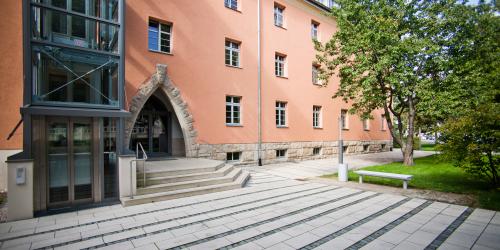
Kommunalservice Jena tests hydrogen drive for refuse collection vehicles
Kommunalservice (KSJ) currently has 23 waste collection vehicles in its fleet, which is the technical name for the refuse collection vehicles, and all of them run on diesel fuel. In the period from 25.05. to 05.06.2020, another vehicle was added for test purposes. The aim of the KSJ is to take further steps to reduce exhaust emissions. This goal is not new, as the latest engine and exhaust technologies have already been used in the 18 new vehicles purchased in the meantime.
In the next step, KSJ is now examining whether waste collection vehicles with alternative drive systems can be used. A comparison of the current drive options, i.e. conventional (designer) fuels, batteries or fuel cells, shows that a hydrogen-powered fuel cell is the most economical in the long term.
E-drives require a very large capacity and therefore heavy batteries, which have an impact on the payload. Added to this are aspects such as the cost-intensive production of the batteries, the use of special materials such as rare earths, and not forgetting the load on the power grid when recharging.
At the beginning of the year, a well-known manufacturer presented a waste collection vehicle that combines the advantages of the electric drive with the battery fuel cell.
Precise configuration of the vehicle
"As the design of the vehicle is based on a modular system, we used the test vehicle at the end of May to the beginning of June to collect logistics data such as distance traveled, operating time, amount of waste collected, etc.," said Jan Wosnitzka, Head of Municipal and Central Services at KSJ.
This enables the manufacturer to determine the exact configuration of a vehicle and, not insignificantly, to derive the costs (acquisition and operating costs).
"However, the procurement of a fuel cell refuse collection vehicle currently requires around three times the investment compared to a refuse collection vehicle with a conventional diesel drive and the latest exhaust gas purification technology. This is an economic challenge that we can only overcome with the help of external funding," emphasized Wosnitzka.
However, Kommunalservice Jena has set itself the goal of making an active contribution to the city of Jena's climate protection goals and reducing carbon dioxide and nitrogen emissions.
